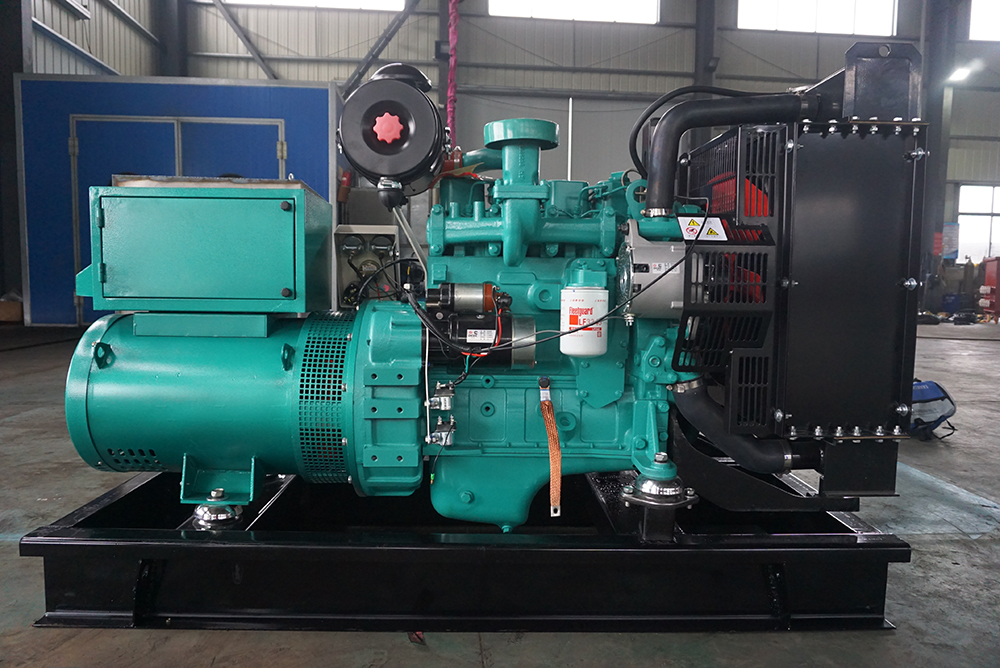Introduction
In remote areas around the world, access to electricity is a critical necessity for communities and businesses to thrive. However, the challenges of establishing reliable power supply infrastructure in such locations can be daunting. This is where diesel generators play a crucial role in providing a dependable source of energy for various applications, ranging from powering small villages to supporting industrial operations in isolated regions. In this article, we will explore the significance of diesel generators in remote power supply, their key features, advantages, applications, and environmental impact.
The Role of Diesel Generators in Remote Power Supply
Diesel generators have long been a popular choice for remote power supply due to their reliability, efficiency, and versatility. These generators are capable of providing a consistent source of electricity even in the most challenging environments, making them ideal for off-grid locations where access to the main power grid is limited or non-existent. By utilizing diesel fuel as their primary source of energy, these generators can operate continuously for extended periods, ensuring uninterrupted power supply to meet the needs of remote communities, industries, and infrastructure.
Key Features of Diesel Generators
Diesel generators are designed to offer a range of features that make them well-suited for remote power supply applications. https://www.lkpowerplant.com/160kw-400kw/ of the key features of diesel generators include:
1. Robust and Durable Construction: Diesel generators are built to withstand harsh environmental conditions, making them suitable for use in remote and off-grid locations where maintenance and servicing may be limited.
2. High Efficiency and Fuel Economy: Diesel engines are known for their high efficiency and fuel economy, allowing diesel generators to generate power at a lower cost compared to other types of generators.
3. Reliable Power Output: Diesel generators are capable of providing a stable and consistent power output, making them reliable for powering critical applications in remote areas.
4. Scalability: Diesel generators come in a range of sizes and power capacities, allowing users to choose the most suitable generator based on their specific energy requirements.
Advantages of Using Diesel Generators in Remote Power Supply
There are several advantages to using diesel generators for remote power supply, including:
1. Reliability: Diesel generators are known for their reliability and ability to provide continuous power supply, making them an essential source of energy in remote areas where power outages are common.
2. Versatility: Diesel generators can be used for a wide range of applications, from powering small residential homes to supporting large industrial operations in remote locations.
3. Cost-Effective: Diesel fuel is widely available and relatively inexpensive compared to other types of fuel, making diesel generators a cost-effective solution for remote power supply.
4. Easy Maintenance: Diesel generators are relatively easy to maintain and service, requiring minimal upkeep to ensure optimal performance over an extended period.
Applications of Diesel Generators in Remote Areas
Diesel generators find a wide range of applications in remote areas where access to reliable power supply is essential. Some common applications of diesel generators in remote locations include:
1. Powering Remote Villages: Diesel generators are often used to provide electricity to remote villages that are not connected to the main power grid, enabling residents to access essential services such as lighting, heating, and communication.

2. Supporting Mining Operations: In remote mining sites where access to electricity is limited, diesel generators are used to power heavy machinery, equipment, and lighting systems to support mining operations.
3. Emergency Backup Power: Diesel generators serve as critical backup power sources in remote areas prone to power outages, ensuring that essential services and infrastructure remain operational during emergencies.
4. Telecommunications Infrastructure: Diesel generators are used to power cell towers, communication networks, and other telecommunications infrastructure in remote locations where grid power is unavailable.
Environmental Impact of Diesel Generators
While diesel generators offer several benefits for remote power supply, it is essential to consider their environmental impact. Diesel generators are known to produce emissions such as carbon dioxide (CO2), nitrogen oxides (NOx), and particulate matter, which can contribute to air pollution and climate change. To mitigate these environmental impacts, it is important to implement proper maintenance practices, use high-quality fuel, and consider alternative energy sources such as solar or wind power in conjunction with diesel generators to reduce emissions and promote sustainability in remote areas.
Conclusion
Diesel generators play a pivotal role in providing reliable power supply in remote areas where access to electricity is limited. With their robust construction, high efficiency, and versatility, diesel generators offer a cost-effective and dependable solution for meeting the energy needs of remote communities, industries, and infrastructure. By understanding the key features, advantages, applications, and environmental impact of diesel generators, stakeholders can make informed decisions on implementing these power sources in remote locations to ensure sustainable and reliable energy supply for years to come.
